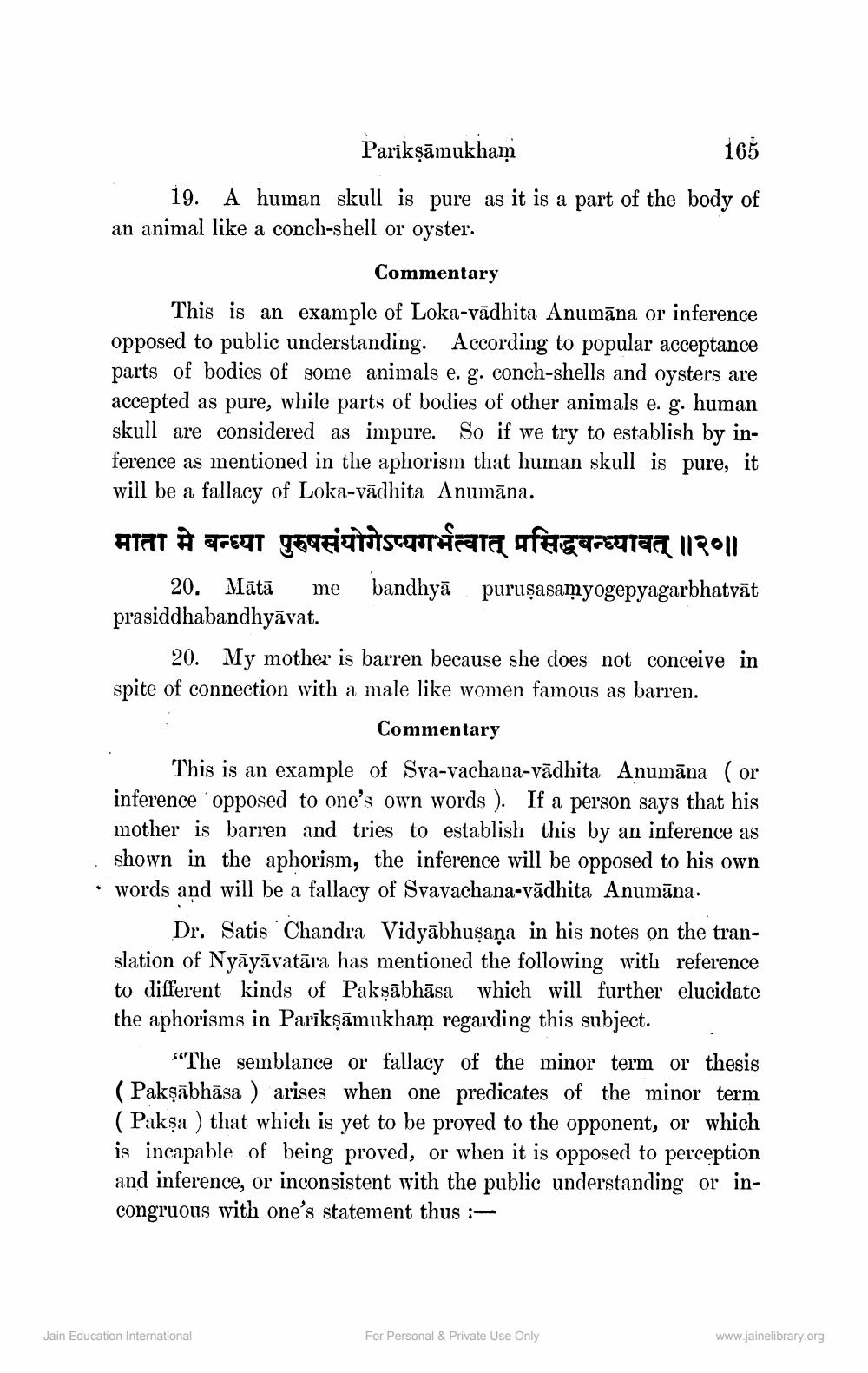________________
Parikṣāmukham
165
19. A human skull is pure as it is a part of the body of an animal like a conch-shell or oyster.
Commentary
This is an example of Loka-vadhita Anumāna or inference opposed to public understanding. According to popular acceptance parts of bodies of some animals e. g. conch-shells and oysters are accepted as pure, while parts of bodies of other animals e. g. human skull are considered as impure. So if we try to establish by inference as mentioned in the aphorism that human skull is pure, it will be a fallacy of Loka-vadhita Anumāna.
माता मे बन्ध्या पुरुषसंयोगेऽप्यगर्भत्वात् प्रसिद्धबन्ध्यावत् ॥२०॥ bandhya
Mātā me
puruṣasamyogepyagarbhatvāt
20. prasiddhabandhyāvat.
20. My mother is barren because she does not conceive in spite of connection with a male like women famous as barren.
Commentary
This is an example of Sva-vachana-vādhita Anumāna (or inference opposed to one's own words). If a person says that his mother is barren and tries to establish this by an inference as shown in the aphorism, the inference will be opposed to his own words and will be a fallacy of Svavachana-vadhita Anumāna.
Dr. Satis Chandra Vidyabhuṣaṇa in his notes on the translation of Nyāyāvatāra has mentioned the following with reference to different kinds of Pakṣābhāsa which will further elucidate the aphorisms in Parikṣāmukham regarding this subject.
"The semblance or fallacy of the minor term or thesis (Pakṣābhāsa) arises when one predicates of the minor term (Paksa) that which is yet to be proved to the opponent, or which is incapable of being proved, or when it is opposed to perception and inference, or inconsistent with the public understanding or incongruous with one's statement thus :
Jain Education International
For Personal & Private Use Only
www.jainelibrary.org




